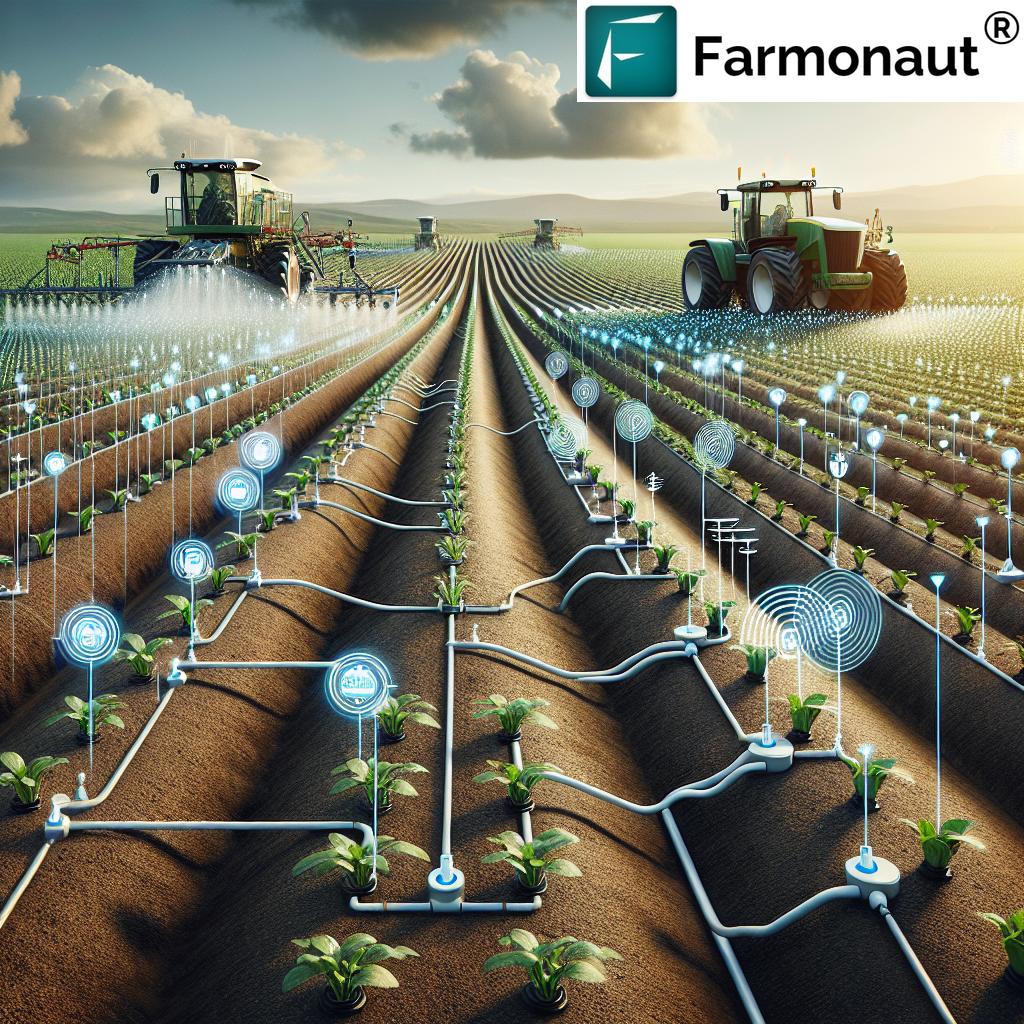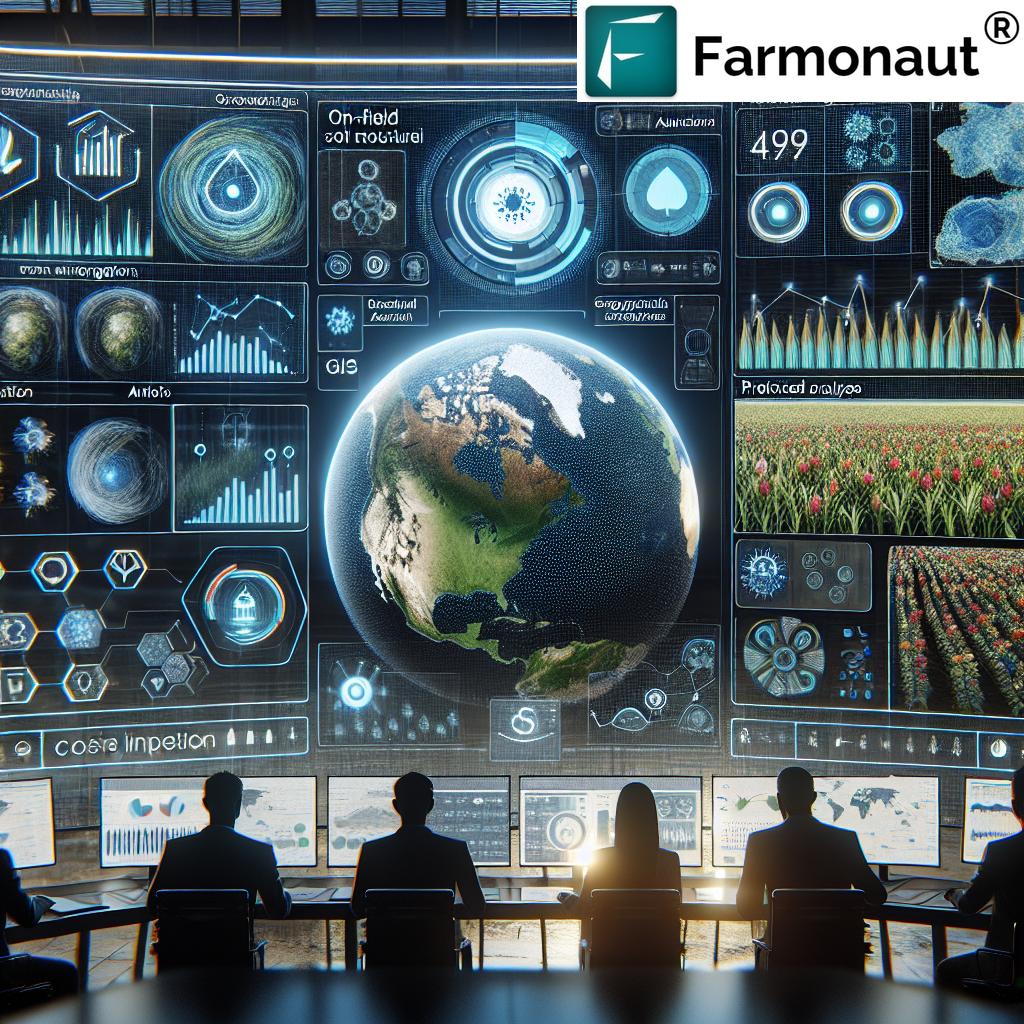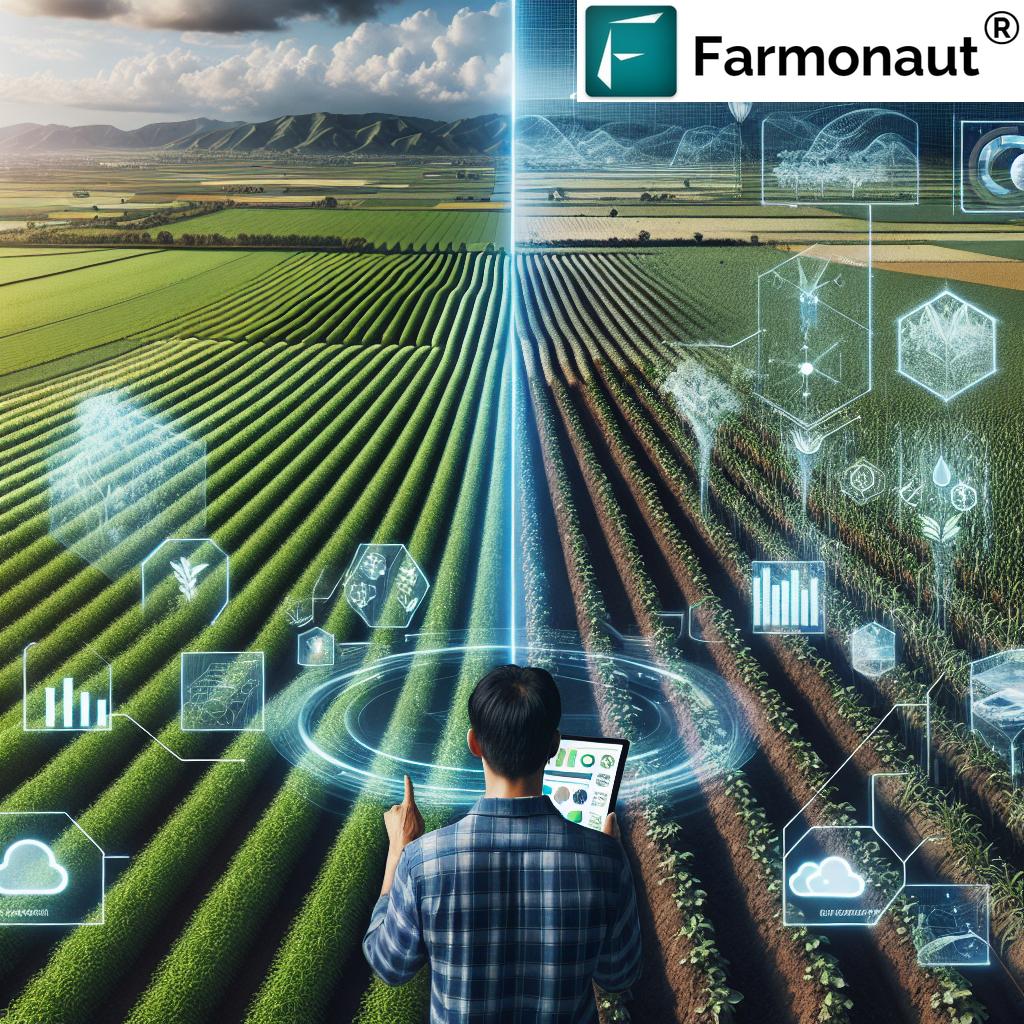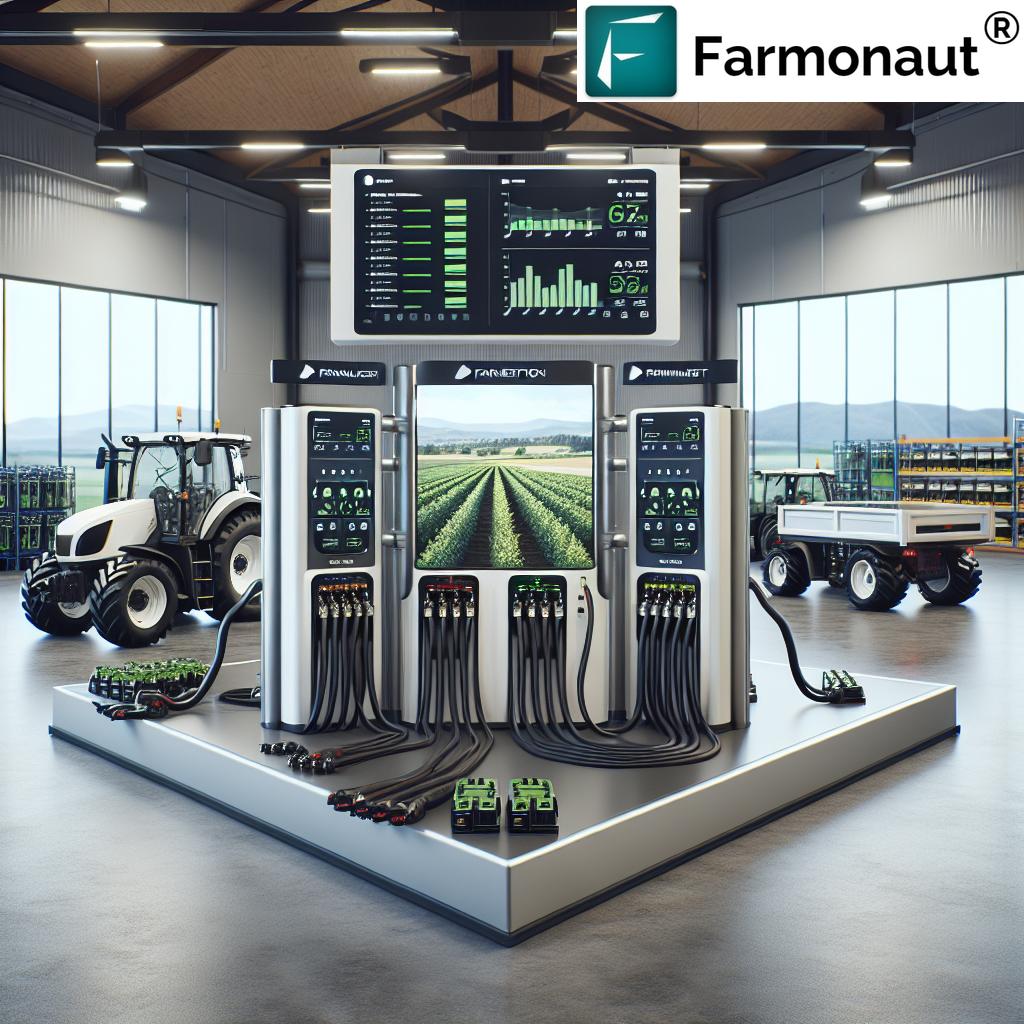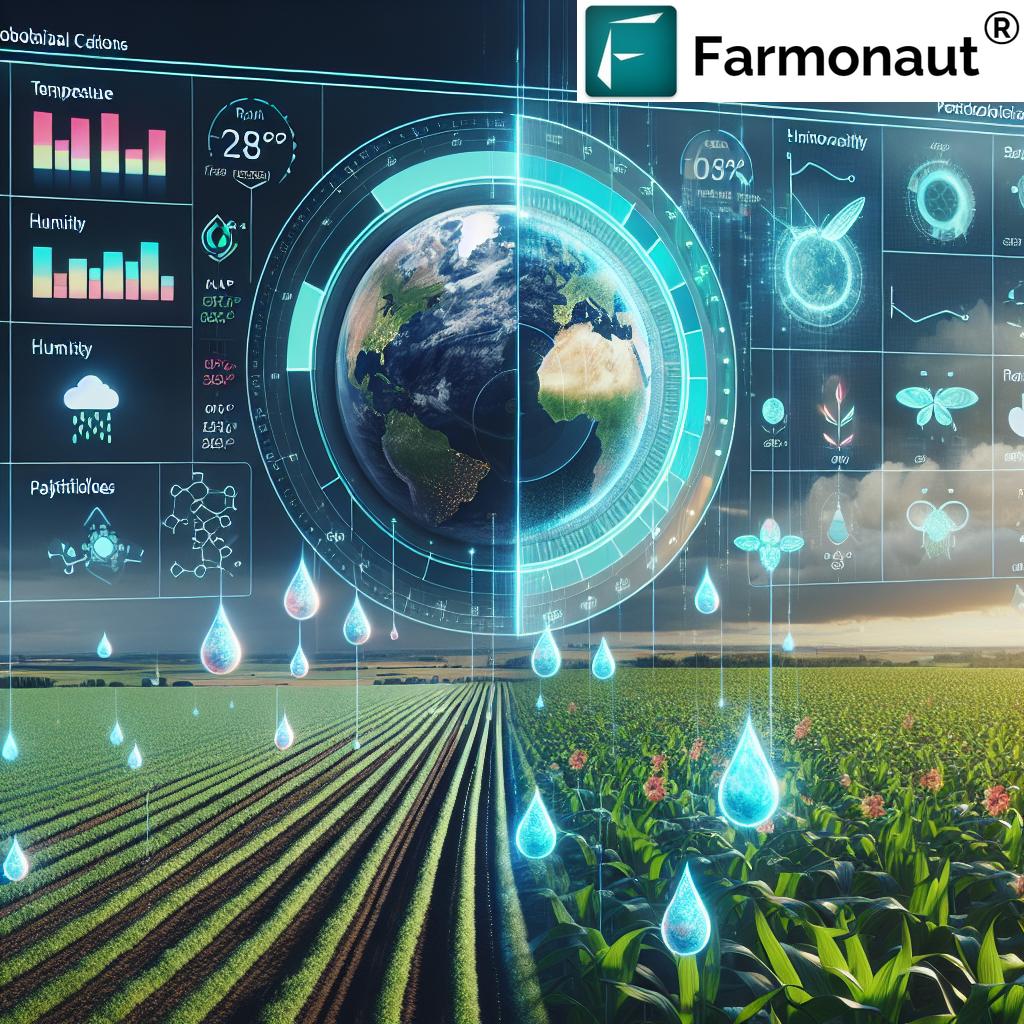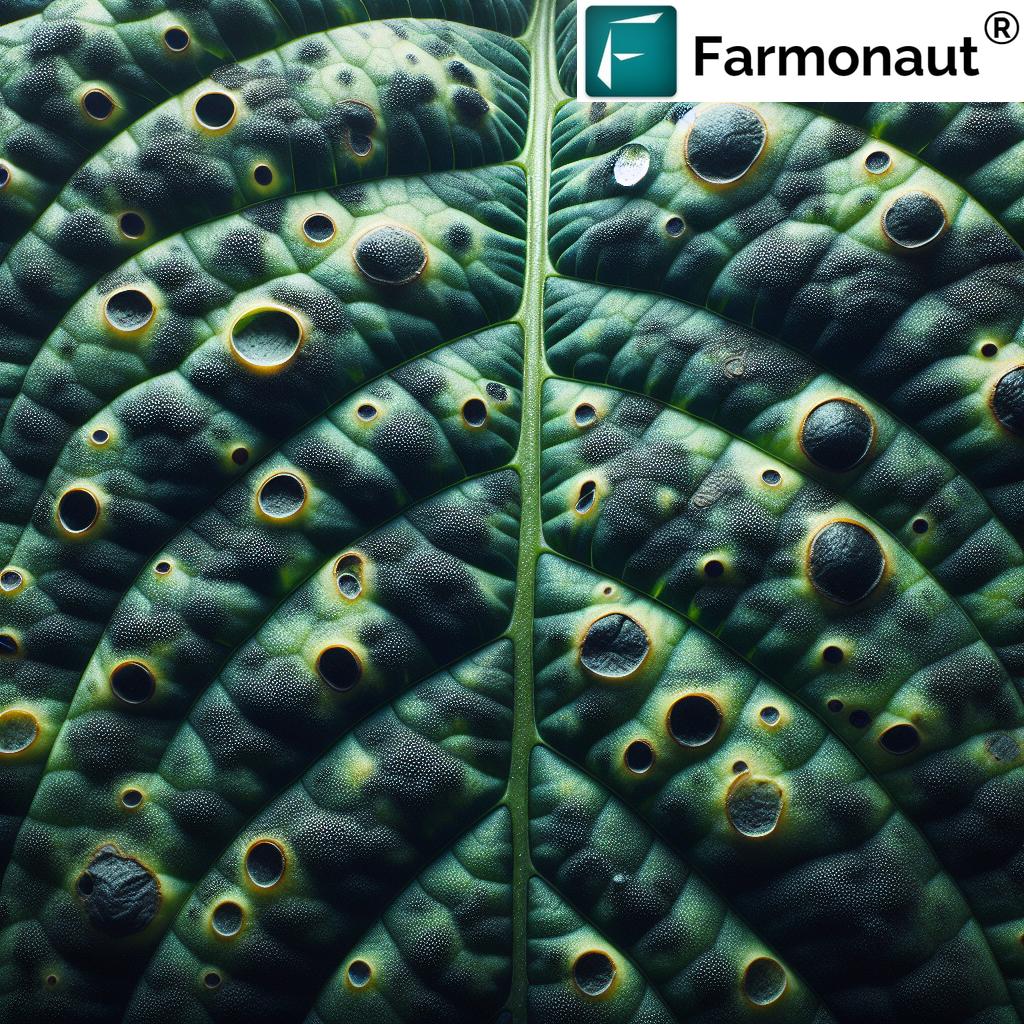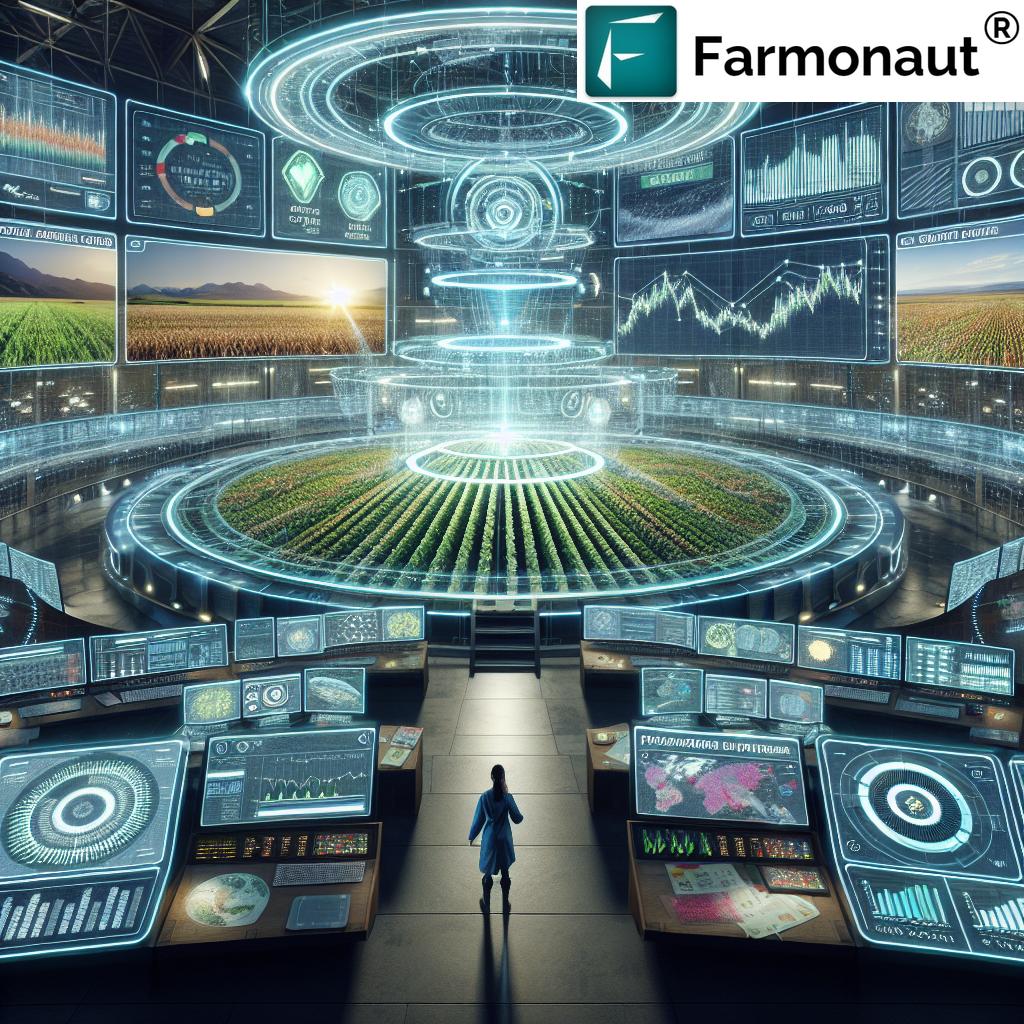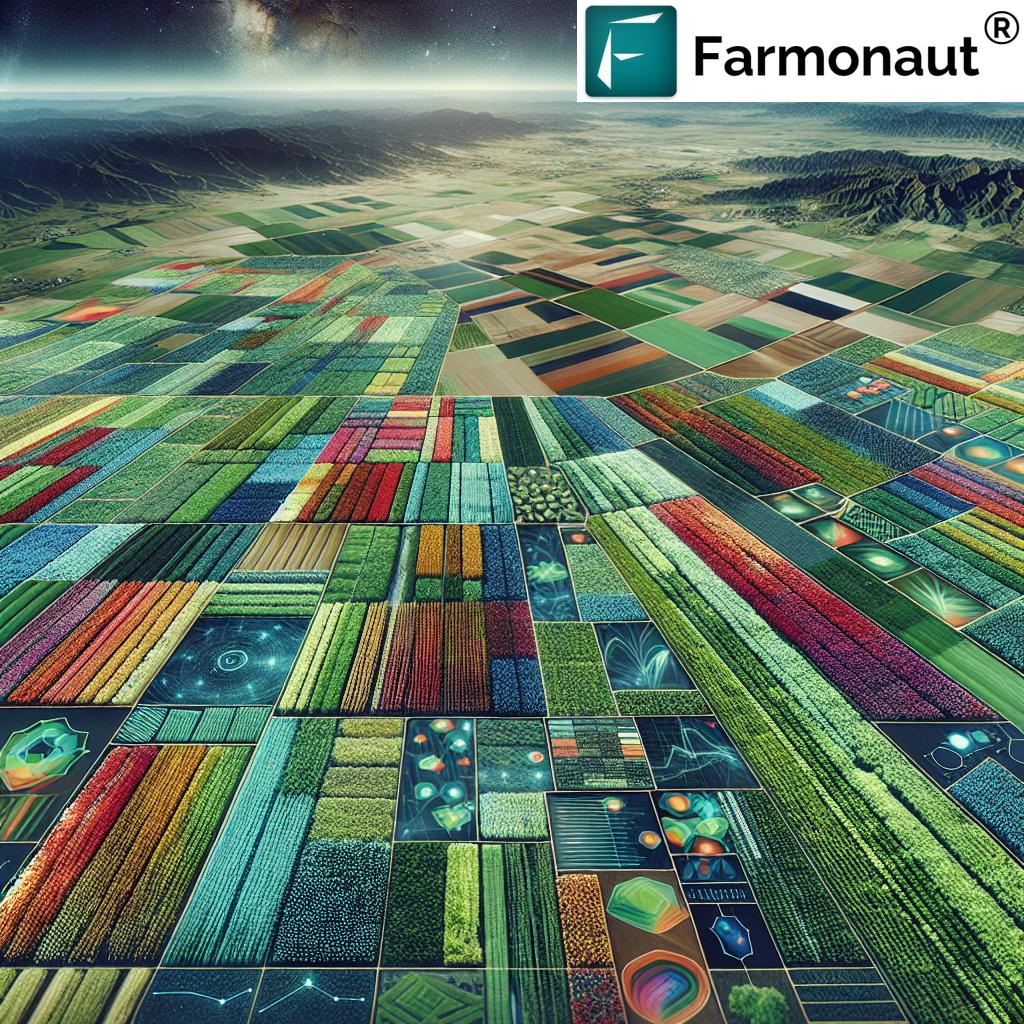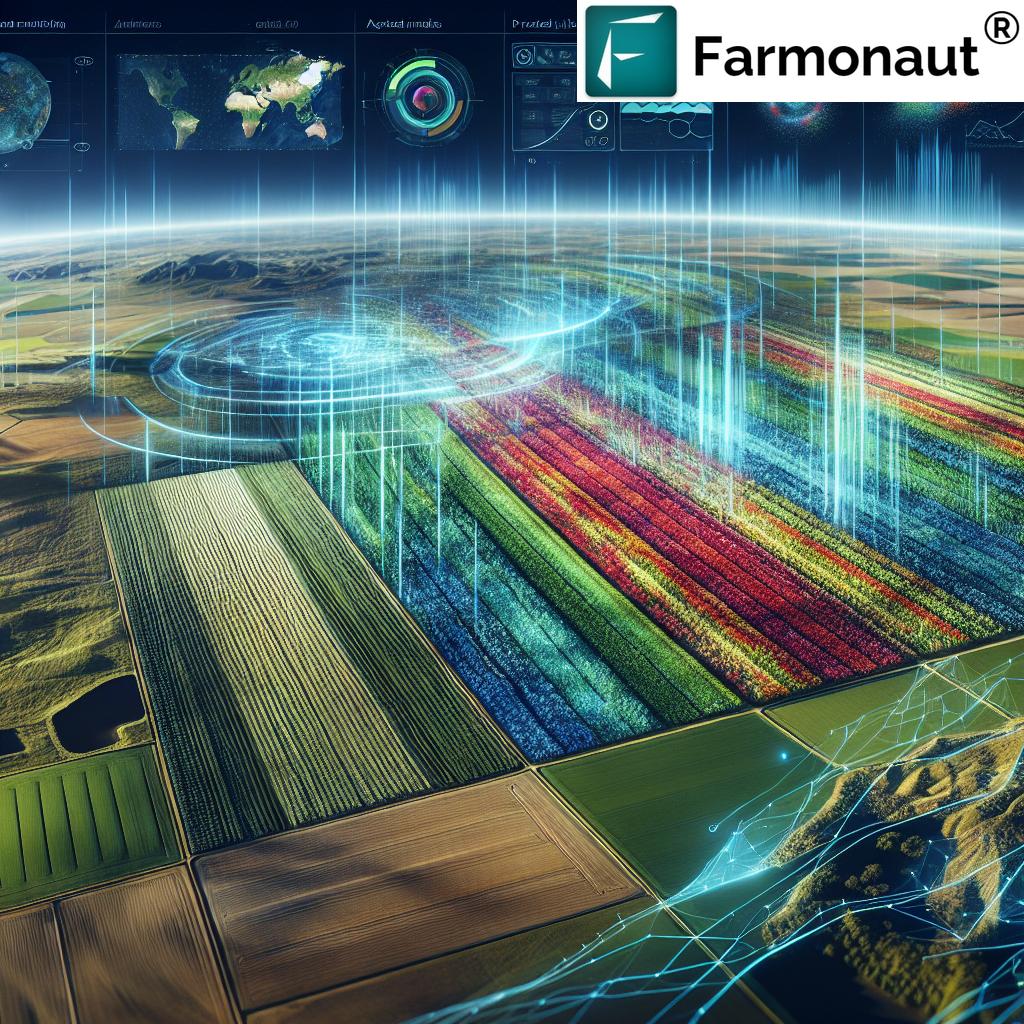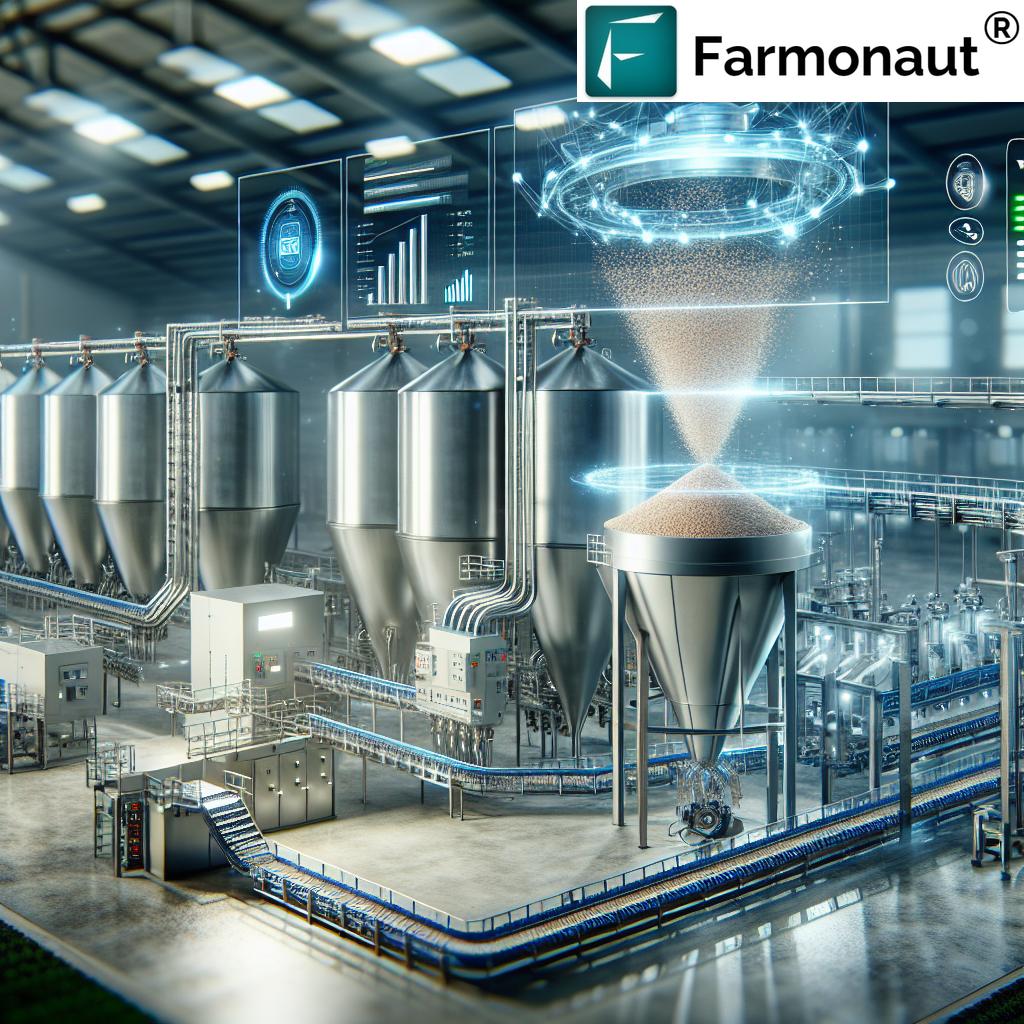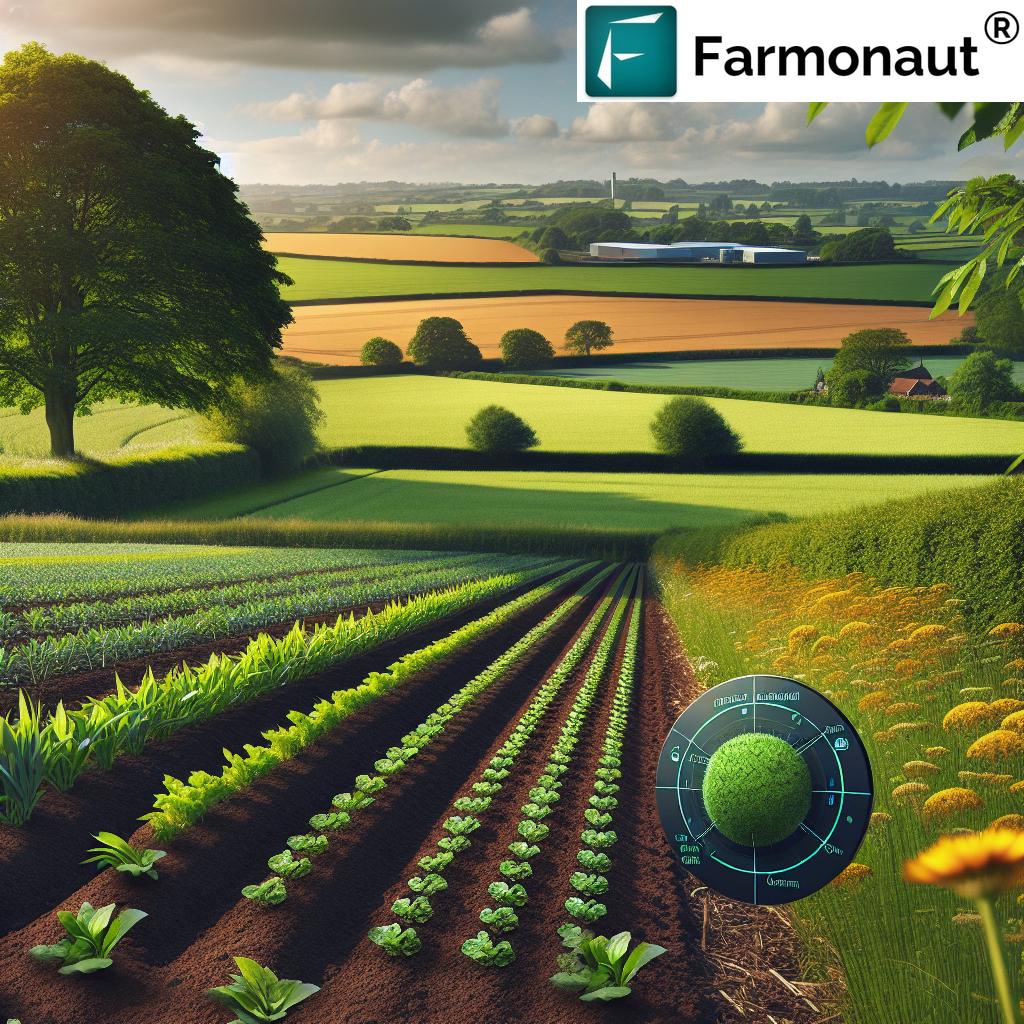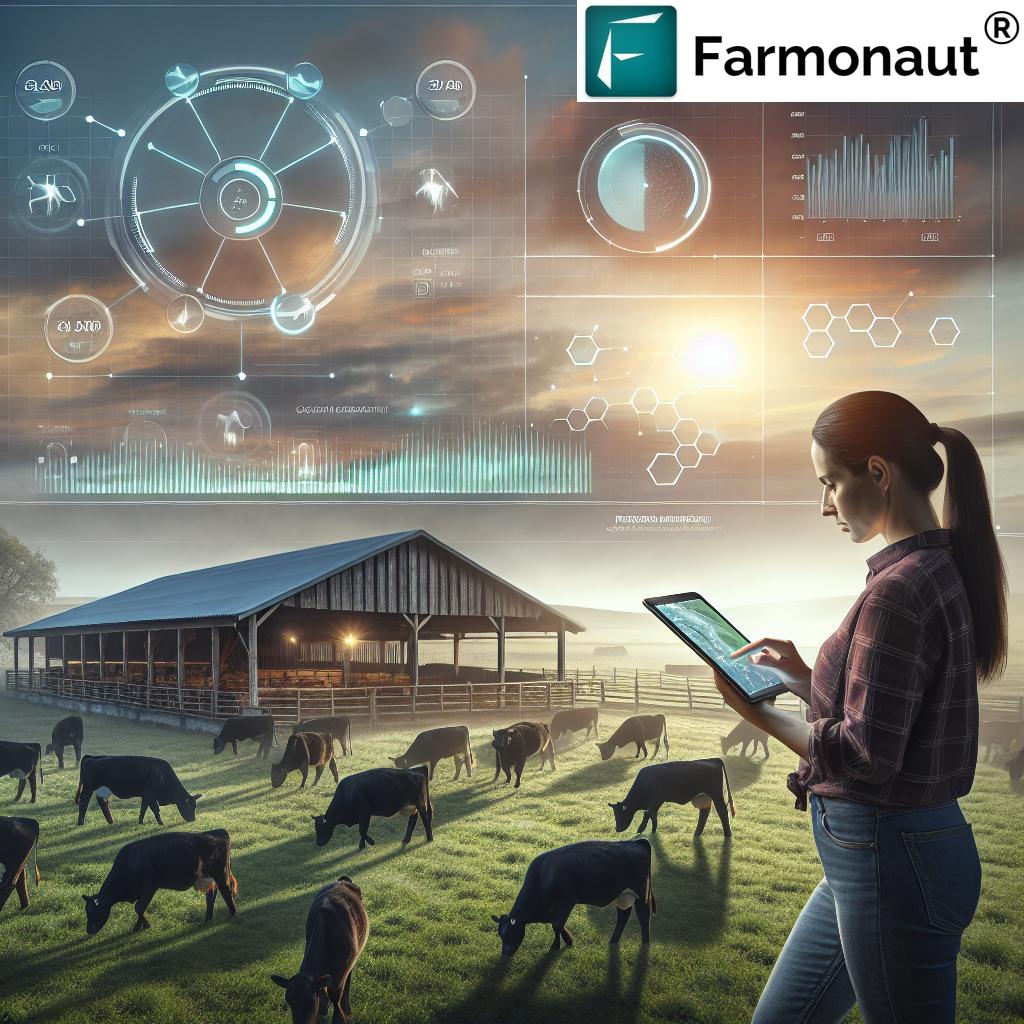How Does Precision Farming Work? 7 Shocking Tech Secrets Unveiled
“Precision farming can reduce fertilizer use by up to 30% through AI-driven soil monitoring and targeted application.”
We are living in an age where precision farming is not just a buzzword but a transformative approach that is revolutionizing the world of agriculture. With powerful AI-driven technologies, advanced sensors, and data analytics, modern farm management has shifted from intuition-based guesses to actionable, data-backed strategies. If you’ve ever wondered how technology really works in the field, or how satellite monitoring and smart irrigation systems are helping farmers boost crop yields while reducing costs and environmental impact, you’re in for a deep dive into the secrets of precision agriculture.
7 Shocking Tech Secrets: Precision Agriculture Technologies Revolutionizing Crop Management
At the heart of precision farming are seven groundbreaking technologies—a blend of engineering, AI, digital sensors, and data management tools—which work together to optimize every facet of farm operations. By leveraging these innovations, we’re seeing unprecedented efficiency gains, resource savings, and improvements in sustainable agricultural practices.
1. Global Positioning System (GPS) & Geographic Information Systems (GIS)
GPS and GIS form the digital backbone of precision agriculture. By letting us map fields, track and guide machinery, and apply inputs (like seeds, fertilizers, and pesticides) with extreme accuracy, these systems are transforming traditional planting and harvesting routines.
- GPS: Allows us to navigate fields precisely, map variation in soil conditions, and track input applications for each section of land.
- GIS: Enables analysis of soil, moisture levels, crop yield mapping, and supports targeted interventions for every unique zone within a field.
For those who want a full-featured, real-time approach to field mapping and analytics, Farmonaut’s Large Scale Farm Management Platform delivers satellite-based insights accessible from both mobile and web.
2. Drones and Remote Sensing for Advanced Crop Monitoring
Drones are rapidly becoming essential tools for monitoring crop health, detecting pests, and documenting overall field conditions.
- Equipped with high-resolution cameras and smart sensors, drones for crop monitoring capture real-time aerial imagery, revealing insights about crop vigor, plant stress, and pest infestations.
- Satellite remote sensing (like Farmonaut’s satellite imagery platform) complements drones by delivering regular, large-area updates on field conditions, soil moisture, and even helps predict yield potential.
Farmonaut integrates satellite-based crop health monitoring to empower us with real-time data. This means our farms benefit without the need for expensive on-ground equipment—an economic and scalable solution regardless of farm size.
3. Smart Sensors, IoT, and Real-Time Soil Monitoring
The Internet of Things (IoT) and an array of soil moisture sensors are at the core of data-driven farming:
- IoT smart devices collect and transmit real-time data on soil moisture, temperature, and nutrient levels.
- This empowers smart irrigation systems to adjust water usage automatically—ensuring optimal moisture for every crop zone, reducing resource waste, and improving efficiency.
The result? Our farms enjoy data-driven, sustainable water management that scales from a single plot to thousands of hectares.
4. Variable Rate Technology (VRT) in Farming
Variable Rate Technology (VRT) has redefined how we apply fertilizers, pesticides, and water by letting us deliver resources exactly where needed, and only as much as required.
- With VRT, input application can be customized based on soil and crop requirements, increasing effectiveness and drastically reducing costs.
- This ensures that every crop receives targeted care, leading to increased yields and minimized environmental impact.
Explore how our platforms optimize VRT recommendations using AI and satellite data.
5. AI in Agriculture and Big Data Analytics
Artificial Intelligence (AI) and big data analytics allow us to:
- Analyze huge volumes of farm data, from satellite images to weather patterns and soil health reports.
- Predict crop diseases, infestations, and optimal planting or harvesting times, making every farm decision more precise and data-driven.
- Farmonaut’s API lets developers and enterprises pull in-field analytics into their systems, while our API Developer Docs offer seamless integration instructions.
- For direct-to-grower AI insights, the Jeevn AI Advisory System in Farmonaut’s app delivers custom weather and crop strategies to increase both productivity and efficiency.
6. Robotics, Automation, and Autonomous Machinery in Modern Agriculture
Autonomous tractors, robotic weeders, and AI-powered harvesters are helping farmers get more done in less time.
- These automation systems perform repetitive and labor-intensive tasks—including planting, weeding, and harvesting—with precision and minimal human intervention.
- Our farms are seeing labor costs reduced and dependence minimized, while efficiency and crop yields continue to rise.
7. Blockchain-Based Traceability & Carbon Footprinting for Sustainable Agriculture
Precision agriculture isn’t just about improving yields—it’s also about sustainability and transparency.
- Blockchain-based product traceability helps us track agricultural products from the farm to the consumer, preventing fraud and building trust in the supply chain.
- Carbon footprint tracking allows our farms to monitor emissions and take action to reduce environmental impact while staying compliant with regulations.
These innovations are crucial for the future of food systems—and Farmonaut is proud to offer both to farmers and agribusinesses globally.
Farmonaut: Making Precision Agriculture Technologies Accessible Worldwide
We believe that precision farming should be affordable and accessible to farmers everywhere, regardless of scale. Farmonaut stands out as a leading agricultural technology company by offering these benefits:
- Satellite-based crop health monitoring—minimizing the need for costly hardware while delivering multispectral data on soil and crop conditions.
- AI-based farm advisory—empowering farmers and agribusinesses to optimize irrigation, fertilizer use, and pest management with real-time, science-based recommendations.
- Blockchain-powered traceability—supporting transparent, fraud-resistant supply chains for agricultural and food products.
- Fleet and resource management tools—helping plantations and enterprises cut logistics costs and boost machinery safety. Details on our Fleet Management platform.
- Carbon footprint tracking—enabling smarter, more sustainable farm operations for a greener planet.
Our solutions are delivered through flexible subscriptions (see pricing below), with easy access across web, Android, iOS, or via API integrations for technical teams. This enables everyone—from smallholders to large agribusinesses—to reap the benefits of advanced precision agriculture technologies.
Precision Farming Technologies vs. Traditional Methods: Comparative Table
| Technology/Method | Key Function | Estimated Yield Improvement | Estimated Water Savings | Estimated Cost Savings | Environmental Impact |
|---|---|---|---|---|---|
| AI Crop Management Software | Predicts crop diseases, optimizes input schedules | +12% – 24% | +10% – 18% | 10% – 20% | Substantial reduction in chemical/pesticide use |
| Drone Soil/Crop Analysis | Scouts crop health, detects pests, monitors field | +8% – 15% | 5% – 12% | 8% – 15% | Reduces over-application of chemicals |
| Smart Irrigation Systems | Automates/optimizes water delivery via sensors | +6% – 12% | 30% – 50% | 15% – 25% | Protects aquifers, reduces soil erosion |
| Satellite-Based Monitoring | Tracks farm health and crop status at scale | +10% – 20% | 15% – 30% | 12% – 20% | Promotes sustainable input use |
| Traditional (Manual) Farming | Reliance on intuition, blanket application | Baseline (0% – Reference) | Baseline (0%) | Baseline (0%) | Higher risk of pollution, soil degradation |
Real-World Applications: How Precision Farming Transforms Agriculture
The real power of precision farming lies in its diverse, on-ground applications. Here are a few ways in which we use innovative tools for better decision-making and sustainable agriculture:
- Soil Sensors: We use soil moisture sensors and nutrient monitors to accurately measure soil health, tailoring irrigation and fertilizer applications as needed.
- Drones for Crop Monitoring: Drones soar over our fields, providing detailed imagery to assess plant vigor, spot pest outbreaks, and evaluate crop development.
- Automated Irrigation Systems: Smart irrigation systems optimize water use based on real-time moisture and weather data, ensuring every drop counts.
- Robotic Harvesters & Weeders: Automation technologies enable precise, cost-effective planting, weeding, and harvesting, reducing labor dependency and speeding up operations.
- Livestock Monitoring: Sensors and smart tags track animal health and movements, helping us ensure food safety, productivity, and rapid response to health issues.
- Predictive Analytics: Combining crop, soil, and weather data allows us to predict yields, react to pest patterns, and adjust management strategies before problems escalate.
- Farm Management Platforms: User-friendly platforms like Farmonaut’s app let us organize complex data and receive timely, actionable recommendations.
To make sure financing and risk mitigation is simple, Farmonaut offers crop loan and insurance support based on satellite data for accurate, fraud-resistant financial decisions. For plantation/forestry management, our Crop Plantation & Forest Advisory delivers zone-specific insights—improving growth rates and environmental resilience.
The Core Benefits: Why Precision Farming Is Essential for Modern Agriculture
Let’s explore the concrete benefits that precision farming brings to the agricultural sector:
- Increased Yields: Optimized input use, targeted application, and timely interventions drive improved crop yields and consistent farm output.
- Cost Savings: By using data to reduce unnecessary fertilizers, pesticides, and irrigation, we see direct reductions in farm operating costs.
- Environmental Sustainability: Precision strategies—including variable rate application and carbon footprint tracking—lower chemical runoff, prevent soil degradation, and minimize overall environmental impact.
- Improved Efficiency: Automation and AI-driven insights streamline operations and reduce labor dependency.
- Better Risk Management: Predictive analytics and satellite insights help us preemptively manage risks from pests, weather, and market volatility.
“Smart irrigation systems in precision farming save up to 50% more water compared to traditional methods.”
Challenges in Implementing Precision Farming: What’s Holding Back Adoption?
While precision agriculture technologies promise enormous gains, their adoption comes with real-world obstacles:
- High Initial Costs: Advanced equipment and crop management software can require significant upfront investment—although platforms like Farmonaut, using satellite data, greatly lower entry barriers.
- Technical Expertise Required: Farmers need training to interpret and act on digital insights, making education a key supporting element.
- Connectivity Issues: Reliable internet and GPS are essential for real-time monitoring; rural/remote areas may struggle with this infrastructure.
- Data Privacy Concerns: Secure management of farm data is crucial to protect farmer rights and prevent misuse by third parties.
Emerging Trends: What’s Next for Precision Farming and Sustainable Agricultural Practices?
- Integration of AI and Machine Learning: As models become more advanced, the speed and accuracy of farm decisions will continue to improve.
- Development of Open-Source Platforms: Making technology accessible to all, accelerating adoption and innovation, especially in emerging markets.
- Advancements in Robotics and Automation: The rise of robotic weeders, drone sprayers, and smart harvesters is making labor-intensive tasks easier and more scalable.
- Enhanced Data Sharing and Standardization: Industry-wide standards and better data-sharing will streamline everything from yield prediction to farm-to-market traceability.
Farmonaut is proud to be at the cutting edge, continually adapting our technology to meet these evolving needs and delivering innovative, accessible solutions for sustainable yields worldwide.
Frequently Asked Questions about Precision Farming
1. What is precision farming and how does it work?
Precision farming, also called precision agriculture, leverages advanced technologies and data analytics to optimize every aspect of farm management. Tools like GPS, sensors, AI, and satellite imagery enable us to make informed decisions about sowing, watering, fertilizing, and harvesting, resulting in higher yields and sustainable agricultural practices.
2. Which technologies are considered essential for precision agriculture?
Key technologies include GPS for mapping, GIS analytics, drones and satellites for remote monitoring, IoT soil sensors, variable rate technology, AI-driven management software, and automation/robotics for fieldwork.
3. Can smallholder farmers benefit from precision farming?
Absolutely! With solutions like Farmonaut’s affordable satellite platform, the benefits of precision farming—including increased yields, cost savings, and improved sustainability—are within reach for farms of all sizes.
4. How does AI-based advisory improve farming decisions?
AI in agriculture analyzes data from weather forecasts, soil health, and satellite imagery to deliver personalized, real-time recommendations—helping farmers predict pest outbreaks, optimize irrigation, and boost yields.
5. What is the environmental impact of precision agriculture technologies?
Precision agriculture drastically reduces unnecessary chemical applications, conserves water, cuts greenhouse gas emissions, and limits soil degradation, supporting sustainable, resilient food production.
6. Where can I access Farmonaut’s solutions for my farm?
Farmonaut solutions are available via web & mobile apps (Android/iOS) or through API for integration into enterprise management systems. Explore more on our website or download via app stores above for instant precision farm management!
Conclusion: Paving the Way for Smarter, More Sustainable Farming & Crop Management
Precision farming is a powerful, innovative approach that’s transforming the agriculture landscape—empowering farmers, agribusinesses, and governments to increase yields, optimize resources, and embrace sustainable agricultural practices. By blending AI, sensors, remote imagery, automation, and blockchain, we unlock a world where every farm can thrive, costs can be minimized, and the environment can be protected for generations to come.
Farmonaut is proud to be at the forefront of the agricultural revolution, making precision farming tools accessible, reliable, and scalable for all. Join us as we redefine agriculture for a data-driven, resilient future—where every insight leads to healthier crops, richer soil, efficient water usage, and a sustainable planet.
Farmonaut Subscription Pricing: Affordable Access to Advanced Precision Farming


